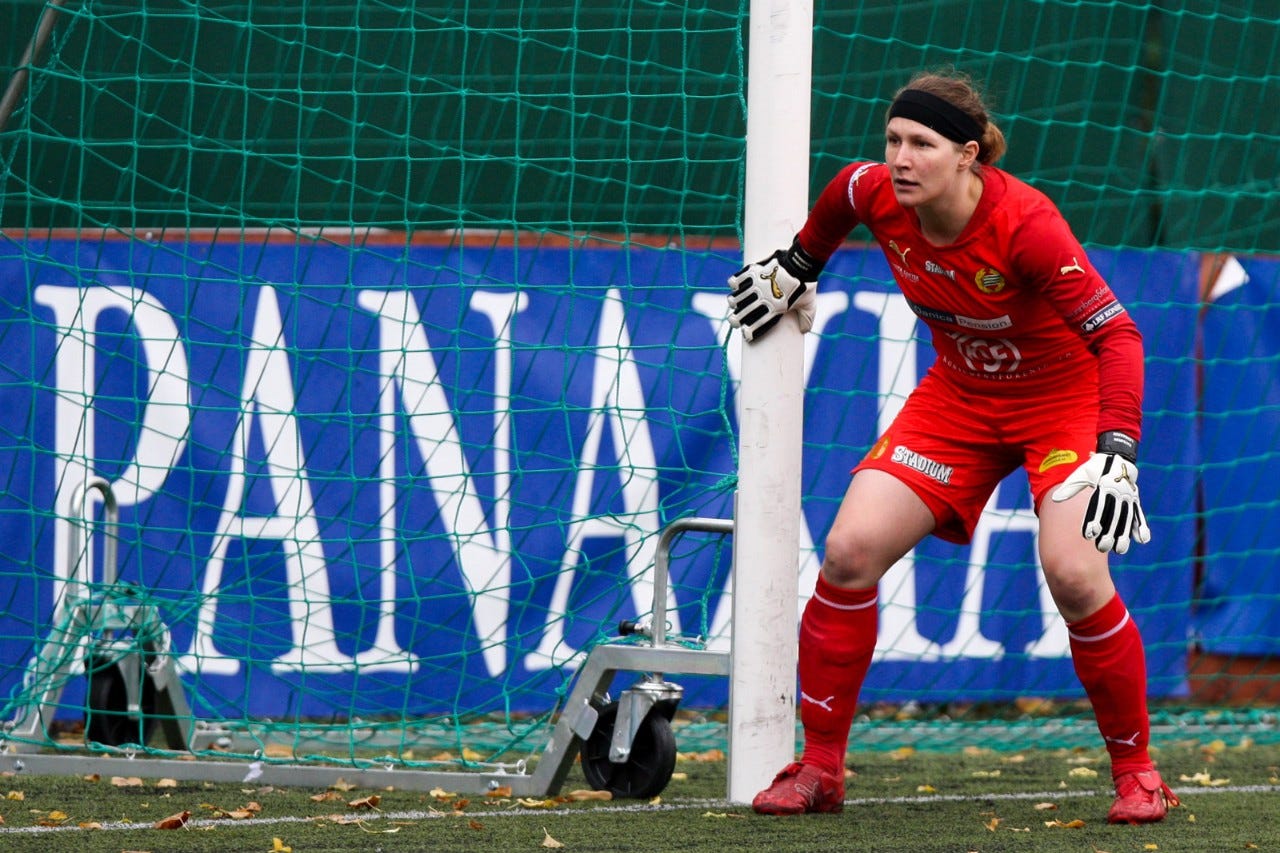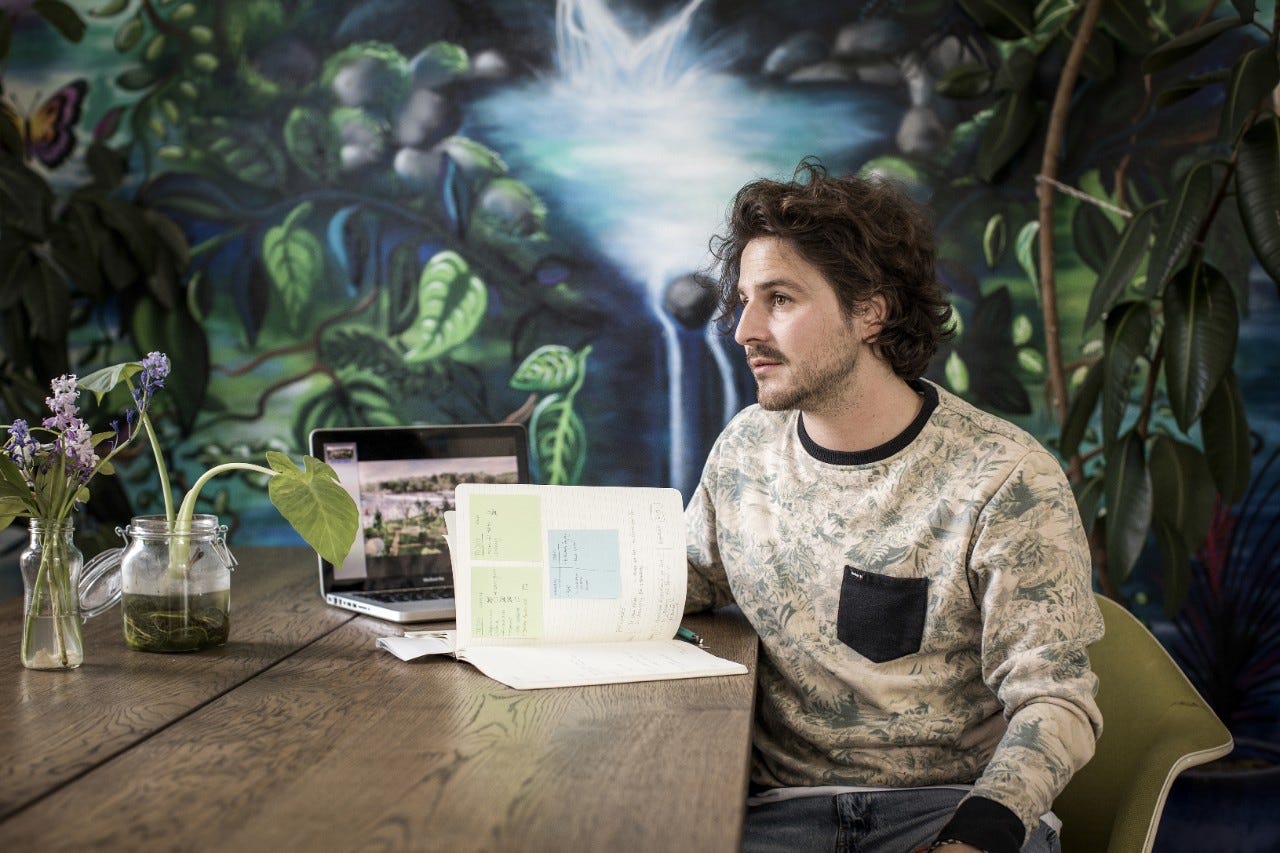Overcoming pressure to perform
From a young age we are already faced with pressure to perform in a range of different areas. But how do you cope when the pressure gets too much?

Tina Turner sings “You’re simply the best” through my headphones. I kiss the left post, jump up to touch the crossbar, kiss the left post, stand in the middle of the goal and look towards the corner flag. In my head I picture how I catch a high ball over the heads of the other jumping players. I celebrate this moment internally, my heart beats to the rhythm of the song, my breathing is determined.
I look forward to every corner kick, because I’ve just successfully faced the fear in my head. The music gives me wings, the last song I hear standing on the penalty spot is Giuseppe Verdi’s Triumphal March from the opera Aida. I feel at one with the playing field, feel the power of the goal behind me – I feel strong.
The better you perform, the greater the pressure
That’s how I got myself ready for football games – I loved playing and I miss it. For me, there was nothing better than the showdown, the game. I always wanted to play with and against the very best. So my goal was to find an environment that would fulfil this wish as successfully as possible.
I knew that creating success also had to come through my body, with my heart and in my head.
As I got older, the professional infrastructure for playing improved. This meant there was more money involved, which in turn meant more pressure to perform – and, of course, there was also the sneaking scepticism from society that could be heard like a ball being kicked non-stop against a wall: “It is impossible to play both football and ice hockey at such a high level.” – “You’ll see” was written on the ball that continued to bounce off the wall.
But switching between football and ice hockey felt completely natural to me. I loved it, it was what made me different – it was one of the things that made me stand out.
“I march to my own beat!”
Putting pressure on yourself
As much as I enjoyed my success and as much as I was admired, doubts started to creep in. There were constantly voices in my head saying: “Watch out! If you make a mistake it’s because of the ice hockey. You’re doing too much, your body can’t keep up, you can’t play both sports at such a high level...”
I didn’t pay all that much attention to the voices, but they were there all the time, like rain drops constantly drumming on a metal table. And these voices were loudest when I was tired, emotional or a bit run down physically.
The volume of the voices continued to increase until it was like a whole choir singing, almost shouting, at me in my head: “You have to” and “No mistakes”. The voices weren’t friendly. The constant doubts and worries ate away at me and played on my nerves, because they acted as a perpetual observer and external warning system.
Suddenly the laughter, playing, creative experimentation and mental security didn’t come so easily. This caused me to make mistakes, take every little criticism from the trainer to heart and to worry about every critical adjective in the media. Game scenarios that I was anxious about became really difficult. All at once, my thoughts felt like a sticky, viscous mass that became even stickier the more I tried to clear my head on my own – similar to chewing gum that sticks between your fingers.
Confiding in someone can be liberating
The first year I played at Bayern München, I can still remember one particular night very clearly. I woke up in a cold sweat because I’d been dreaming of training and match scenarios on our pitch. I couldn’t get this dream out of my head. I was awake, but couldn’t switch off. I couldn’t get back to sleep, I couldn’t do anything.
I knew that I never wanted to have a night like that again where I was so involved that I couldn’t wake up from the dream. That’s not me! I felt better when I confided in a fellow player. She also played at the very highest level. Her German wasn’t great. But it was somehow helpful that she didn’t understand everything, but she felt exactly what I wanted to tell her.
She just said: “Ka, you’re here, because you’re Ka.” This sentence and this moment shook me awake. The fact that I told someone how I felt, that I had someone to listen to me, was probably the most important thing for me at that moment. It did me the world of good.
“Not everything has to make sense, you don’t have to be able to explain everything. And that’s good.”
Self-determination and mindfulness
I started to practise mindfulness – when times were good, bad and completely neutral. In completely neutral moments, for example on long bus trips, at university or when I was with friends who weren’t from the world of sport, I was mindful of my environment and was able to observe, explore and learn things about myself.
Who is talking to me? Who do I want to talk to? What have I achieved? What was strange? What did I laugh about? Which orchestra am I listening to? What kind of music do I want to listen to? Sometimes I wrote down how I felt, sometimes I talked to my dogs or my friends – it was so important for me to be able to articulate what I was feeling in some way.
And I learned that not everything has to make sense, you don’t have to be able to explain everything. And that’s good. By being mindful of neutral moments, I developed a simple method of turning negative thoughts around and essentially overcoming out the doubts and negative voices in my head. I pulled the plug on negative thoughts, took a deep breath and changed the tune. I march to my own beat!

Kathrin Lehmann played 31 games in goal for the Swiss national football team between 31 and 31. And her record on the ice isn’t too shabby either! And she won bronze with the team at the World Championships in 2012.
And as a member of the jury for the Sanitas Challenge Award for the last 7 years, she has been encouraging children and young people to do more exercise.


